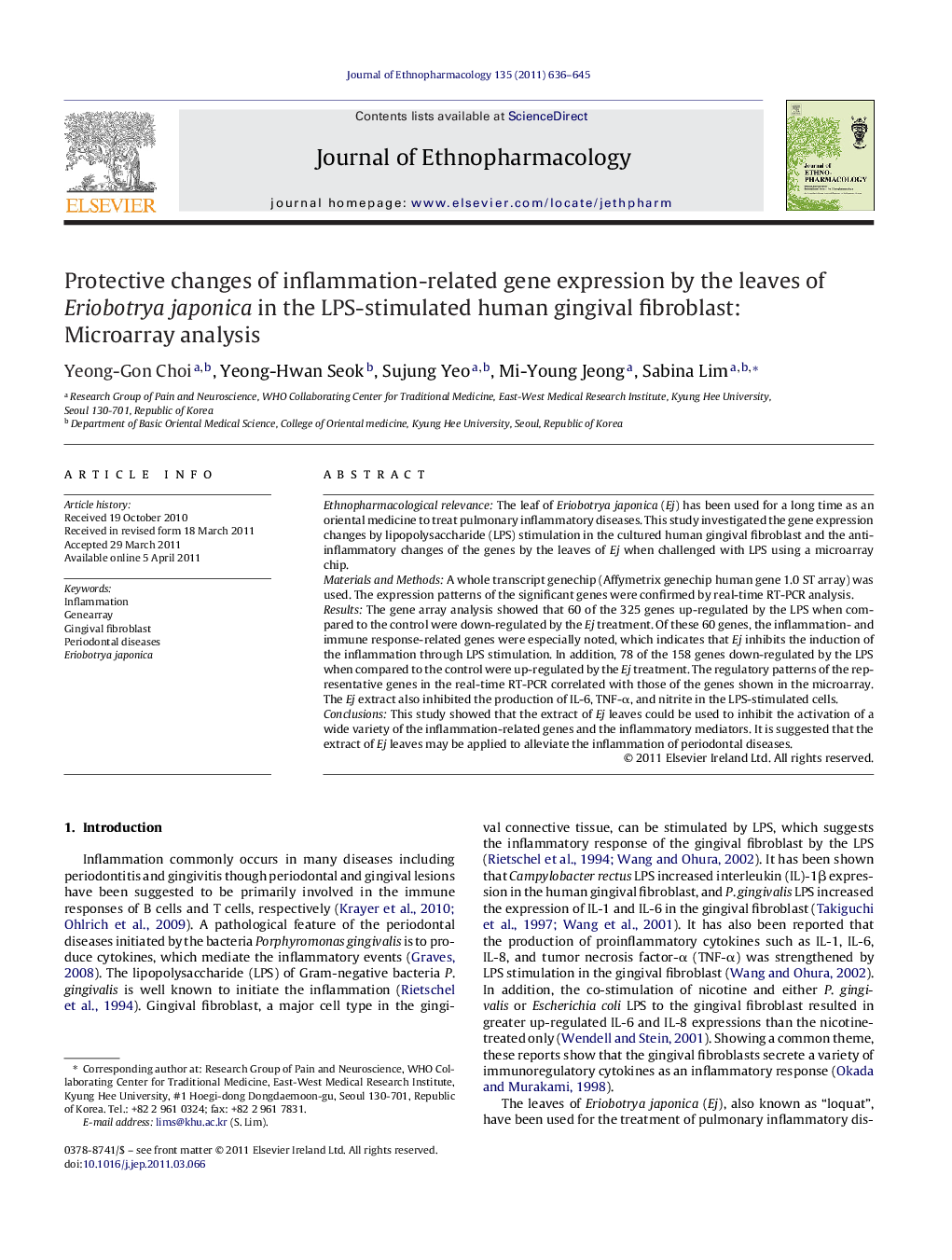| Article ID | Journal | Published Year | Pages | File Type |
|---|---|---|---|---|
| 5840162 | Journal of Ethnopharmacology | 2011 | 10 Pages |
Abstract
Ethnopharmacological relevanceThe leaf of Eriobotrya japonica (Ej) has been used for a long time as an oriental medicine to treat pulmonary inflammatory diseases. This study investigated the gene expression changes by lipopolysaccharide (LPS) stimulation in the cultured human gingival fibroblast and the anti-inflammatory changes of the genes by the leaves of Ej when challenged with LPS using a microarray chip.Materials and MethodsA whole transcript genechip (Affymetrix genechip human gene 1.0 ST array) was used. The expression patterns of the significant genes were confirmed by real-time RT-PCR analysis.ResultsThe gene array analysis showed that 60 of the 325 genes up-regulated by the LPS when compared to the control were down-regulated by the Ej treatment. Of these 60 genes, the inflammation- and immune response-related genes were especially noted, which indicates that Ej inhibits the induction of the inflammation through LPS stimulation. In addition, 78 of the 158 genes down-regulated by the LPS when compared to the control were up-regulated by the Ej treatment. The regulatory patterns of the representative genes in the real-time RT-PCR correlated with those of the genes shown in the microarray. The Ej extract also inhibited the production of IL-6, TNF-α, and nitrite in the LPS-stimulated cells.ConclusionsThis study showed that the extract of Ej leaves could be used to inhibit the activation of a wide variety of the inflammation-related genes and the inflammatory mediators. It is suggested that the extract of Ej leaves may be applied to alleviate the inflammation of periodontal diseases.
Related Topics
Health Sciences
Pharmacology, Toxicology and Pharmaceutical Science
Pharmacology
Authors
Yeong-Gon Choi, Yeong-Hwan Seok, Sujung Yeo, Mi-Young Jeong, Sabina Lim,
